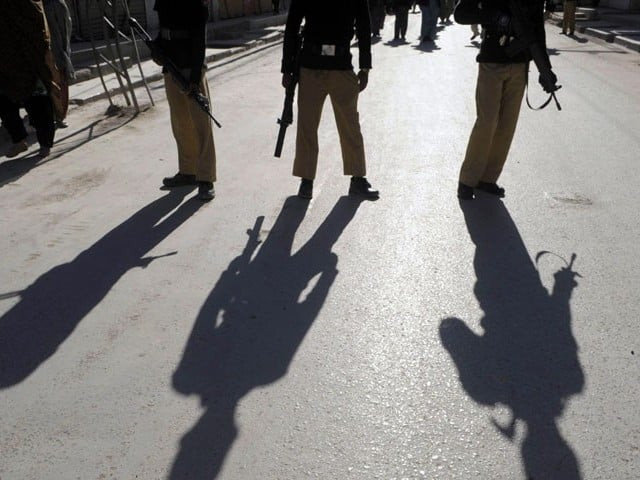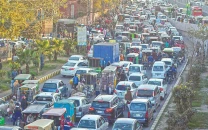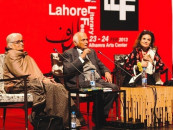Mistreatment by police continues unabated
Many officials react lightly to abuses hurled at woman by CCPO

A large section among police officials came forward to defend CCPO Umer Shoib Sheikh after he hurled abuses at the wife of an alleged drug dealer.
This symbolised a misogynist mindset as a number of officials were perturbed over the incident having been taken seriously.
It also exposed the mindset that does not take exception to mistreatment of those associated with a criminal, even women and children.
Many officials termed it old tactics of drug mafia of using women for saving themselves. Some cited the example of a woman who had taken off her clothes after police tried to arrest some men on charges of drug dealing.
Even the government treated it as an incident of mismanagement rather than an offence against gender and a part of police excesses that need to be addressed.
Gender insensitivity and justification of police excesses with criminals are two fronts where fundamental changes are needed.
Changing the culture of police stations has been a phrase used repeatedly for quite some time by the previous government. The government of Pakistan Tehreek-i-Insaf (PTI) has also focused on the theme to a large extent.
However, concrete measures in this regard are missing.
Gender disparity has been recognised as a serious issue globally in wake of the feminist movement. It has left notable imprints on various fronts in all fields of life.
However, Punjab Police has managed to remain largely aloof to the changes.
It has failed to overcome the disparity in its departmental structure. Women officials are hardly seen in police and their representation in the force is nominal. This disparity is also reflected in public dealing.
The police appear to be as oblivious to women’s rights as they were a century or two back. The abuses hurled by the CCPO and its aftermath are a part of the pattern
In wake of Covid-19
The role of police had gone through fundamental changes after the increase in terrorist attacks. Earlier, their focus was on dealing with crimes and maintaining law and order. However, after terrorism struck hard our part of the globe, the security paradigm changed.
Thwarting terrorism and ensuring security of the people came up as two major challenges. Resources and attention was diverted towards meeting the new challenges. In the 1990s the Elite Force was established and a decade later, the Counter Terrorism Department.
Before the wave of terrorism, police stations were considered to be a public place visited frequently by citizens. Questioning a person entering a police station was not a trend. Police officers also did not keep themselves away from public places because of a danger of being targeted.
Now, Covid-19 has emerged as a challenge larger than terrorism that the police faced for three decades.
Earlier, when a disease hit a community, the attention was diverted to the medical community. However, Covid-19 has made the police equally important along with doctors as lockdown is imposed by the police.
However, the new role is not getting support and investment proportionate to its magnitude. It is understandable that when Covid-19 hit the world, it was a new phenomenon. But it is worrying that the police were unprepared for the second wave that is being expected to be harsher than before.
Published in The Express Tribune, November 1st, 2020.


















COMMENTS
Comments are moderated and generally will be posted if they are on-topic and not abusive.
For more information, please see our Comments FAQ